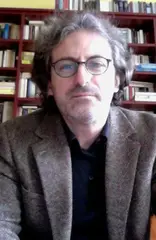
Focusing on the notion of worldliness (understood in a negative sense) within the broader frame of world-relatedness (understood in a positive sense), the major objective of this research project is to investigate this development and its consequences within the main Christian Churches (Eastern Orthodoxy, Roman Catholicism, and Protestantism), both historically and at present, on the basis of selected case-studies. These main Christian traditions have articulated various modes of thinking, orientations and practical attitudes towards the world, which have grown to be quite different in many respects. Out of socio-historical reasons, the challenge of worldliness, for instance, has been greater within Western rather than within Orthodox Christianity, which in general kept the boundaries between the church and the world more clearly delineated. All this has been a source of misunderstandings and mutual criticism between Christians in East and West. It is for this reason that this project tries, first, to explore potential ways in which Orthodox Christian perspectives may offer alternatives to the growing worldliness within Western Christianity, which has been criticized on many occasions as transforming the Christian witness into a purely this-worldly category, deprived of its metaphysics and otherworldly dimensions, which have always been an integral part of Christianity. In turn, the Orthodox may also profit from the more systematic tradition of world-engagement within Western Christianity; for instance, by giving to the Orthodox mystical ideal of theosis/θέωσις (deification) a more activist content. In the end, adopting a value-free comparative perspective, the project seeks to contribute to a fruitful dialogue between the Christian Churches in East and West concerning the necessary balance between affirmative world-relatedness and sound spirituality, imbued with pertinent otherworldly elements. The projects aims at providing nuanced analyses of such questions through a series of concerted activities for an academic as well as non-academic audience, ranging from blogging, working papers and scholarly articles to teaching, lecturing, conferences and international cooperations. It is thus a highly topical issue that addresses not only scholars, church officials, policy makers and related organizations, but also ordinary believers, interested in the intersection between the “sacred” and the “profane”, the question of secularity, personal spiritual formation, and the proper role of the church in today’s global environment and in transforming society.
Project Leader
Research Fellow
nach Vereinbarung per E-Mail



